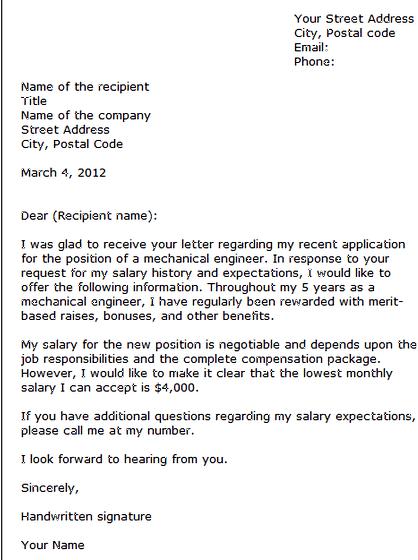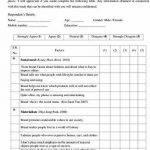A lot of postings for jobs want you to include your salary history and salary requirements when you are applying for a position. If the job posting doesn’t mention it, however, don’t offer any of the information about your salary. If it is too high, they can take you out of the running if they don’t want to pay this much or if they think you will not be happy working for less than what you asked for. If your salary is currently lower than what the company was planning to give you, then they could offer you a salary that is lower. You want the prospective employer to bring up this issue first, if at all possible. Here we serve more details about how to write a salary requirements letter or how to include salary requirements into a letter.
Why Do Recruiters Ask for Salary Requirements?
You may wonder why employers ask for your salary information. There are several reasons why you are asked such a question. Your salary requirement letter lets the recruiter know whether you are under-qualified (very low expectation), over-qualified (very high expectation) or just right for the job (having the right expectation).
It is a great device for screening and it makes the selection a lot easier for the recruiter. The recruiter might not think you value yourself or are capable to handle the job if your expectation is too low. In some circumstances, it could work to your advantage when a company is looking for ways to save money while recruiting only people who don’t need a high paying job.
How to Write a Salary Requirements Letter
Salary requirements in cover letter are a common and effective way to get across what your salary requirements are. How to write a salary requirement letter can be an important step in getting a satisfying job offer.
Research salary and job data on the Bureau of Labor Statistics website and you’ll find details of salaries by region and industry, metropolitan areas and state. You can also get in touch with professional organizations which are related to the industry that could have salary survey data they could share with you. Call an employment agency and speak to a recruiter for information on the salary for the job you’re interested in.
Avoiding the salary requirement question is best, and writing open or negotiable in the letter is good if you don’t want to list a specific range. Because, if your range is under what they are willing to offer, you could get a lesser offer than if you avoided the question, and if it is higher, the employer could decide to disqualify you for the job altogether. Giving a range instead of a figure will also give you more negotiating power.
Use the data you collect to make a salary range, adding $10,000 to the minimum starting salary for the upper salary range. Therefore, if you find that most people starting out in this position earn at least $52,000; use that as your starting salary and then $62,000 for the max limit of the range. Add another $10,000 to the minimum if you have more education than required or experience in the field, making your starting range $62,000 and your upper limit $72,000.
If you can’t find any salary information for the job you are applying for, take your last starting salary and add ten percent to the starting salary, and $10,000 to the upper limit.

For instance, if you last made $50,000, add $5,000 to the starting range and $10,000 to the upper limit, for a starting salary of $55,000 and an upper limit of $65,000.
Salary Requirements Letter Samples
- Your salary requirement letter shouldn’t be longer than one page.
- Use Times New Roman, size 12 Font (this can be 11 point for any but corporate jobs), for corporate jobs use 8-1 point (font must be 1 inch for corporate jobs). Besides, for both the resume and cover letter use the same identifying information format.
- Your salary requirements letter should be addressed to the recruiter or hiring manager. If you don’t know the name of the individual, speak with the organization and ask for the right person’s name and title.
- Double check the spelling of titles and contact names. Look for any grammar and spelling mistakes. Typographical, spelling and grammatical errors are not acceptable.
- Sign your letters using black ink.
- When send your letter, for an email, attach your salary requirements letter to the e-mail and mention the attachment in the body of the e-mail; for standard mail, your letter should be printed out on resume paper; fax on regular paper.
ANY IDEAS ABOUT THIS TOPIC?
I appreciate, cause I found just what I was looking for. You have ended my 4 day long hunt! God Bless you man. Have a nice day. Bye gbgddggeggkegcdd
whoah this weblog is wonderful i really like studying your posts. Keep up the great paintings! You already know, lots of individuals are searching around for this information, you can help them greatly. bdbbdeagceadefcc
I like this post, enjoyed this one thank you for putting up. No man is wise enough by himself. by Titus Maccius Plautus. adkdekeadbddakcc




 Open university creative writing phd rankings
Open university creative writing phd rankings Writing questionnaires for dissertations on leadership
Writing questionnaires for dissertations on leadership Social awkwardness is my superpower writing
Social awkwardness is my superpower writing The makers eye-revising your own writing engraved
The makers eye-revising your own writing engraved Sale of business customer letter writing
Sale of business customer letter writing






